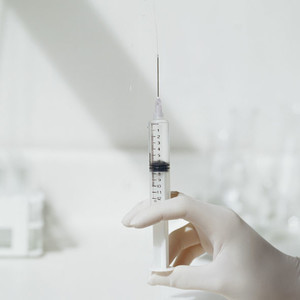In May and June 2009 the White House reportedly made ‘behind closed doors’ deals with the pharmaceutical industry to win support for the Affordable Care Act. The House Energy and Commerce Committee, which has a Republican majority, released emails from the industry lobbying group. In response, the White House called the release of the emails ‘a nakedly political, taxpayer-funded crusade to hurt the president’s re-election campaign.’
Squabbles continue over Obama health bill
Home/Policies & Legislation
|
Posted 18/06/2012
 0
Post your comment
0
Post your comment

In May 2009, after the administration was hit by negative stories about the rising costs of its proposed healthcare overhaul, a drug industry lobbyist emailed colleagues, saying that this was ‘perfect timing to cut our deal with the White House as this is swirling.’ Negotiations were conducted in private and the industry seemed to think it was getting a good deal. White House concessions to industry included abandoning price controls for prescription drugs and abandoning President Obama’s campaign pledge to allow the re-importation of cheaper drugs.
The ups and downs of the pharma industry’s response to the bill’s progress through the legislature were under considerable scrutiny at the time. The press reported the huge amounts spent in lobbying and advertising and the fact that the industry was at the same time supporting and opposing the bill. Complaints were made about the ground given to Big Pharma during negotiations.
The emails indicate that the White House originally wanted about US$100 billion in savings and other breaks, but got only US$80 billion, in return for increasing the number of patients with health insurance and drug coverage. They show that drugmakers won other unpublicised deals from the administration. These included a promise from the White House not to demand that drugmakers negotiate Medicare prices with the federal government, which could have reduced drug costs.
In the tussle, former White House Chief of Staff, Mr Jim Messina told drug company representatives in June 2009 that if they did not cooperate on the initiative, President Obama would demand a 15% rebate on Medicare drugs and push to remove the tax deduction for direct consumer advertising―items that could cost the industry US$100 billion over the next decade.
Those threats apparently worked, since parties worked out a deal shortly thereafter. The drug companies agreed to pay higher Medicaid rebates and a new healthcare reform fee to raise US$80 billion for the legislation and promised to run positive television ads about it.
In exchange, the White House gave them direct input into the new policies and promised to let them continue to set their own drug prices.
Editor’s comment
So did these exchanges violate the promises of transparency President Obama made during his 2008 campaign? Or was the deal-making no different from what was done for major legislation under previous presidents? Do not forget it is election year.
Please feel free to share your thoughts via email or in the comments section below. What is your opinion on these ‘behind closed doors’ deals? Should such practices be allowed? Is there a need for complete transparency in dealings with the pharmaceutical industry?
Related article
Political battle over US health care continues
Source: The Wall Street Journal, The Washington Times, WSWS
Guidelines
US guidance to remove biosimilar comparative efficacy studies
New guidance for biologicals in Pakistan and Hong Kong’s independent drug regulatory authority
EU accepts results from FDA GMP inspections for sites outside the US

Home/Policies & Legislation Posted 27/01/2026
WHO to remove animal tests and establish 17 reference standards for biologicals

Home/Policies & Legislation Posted 07/01/2026
The best selling biotechnology drugs of 2008: the next biosimilars targets








Post your comment